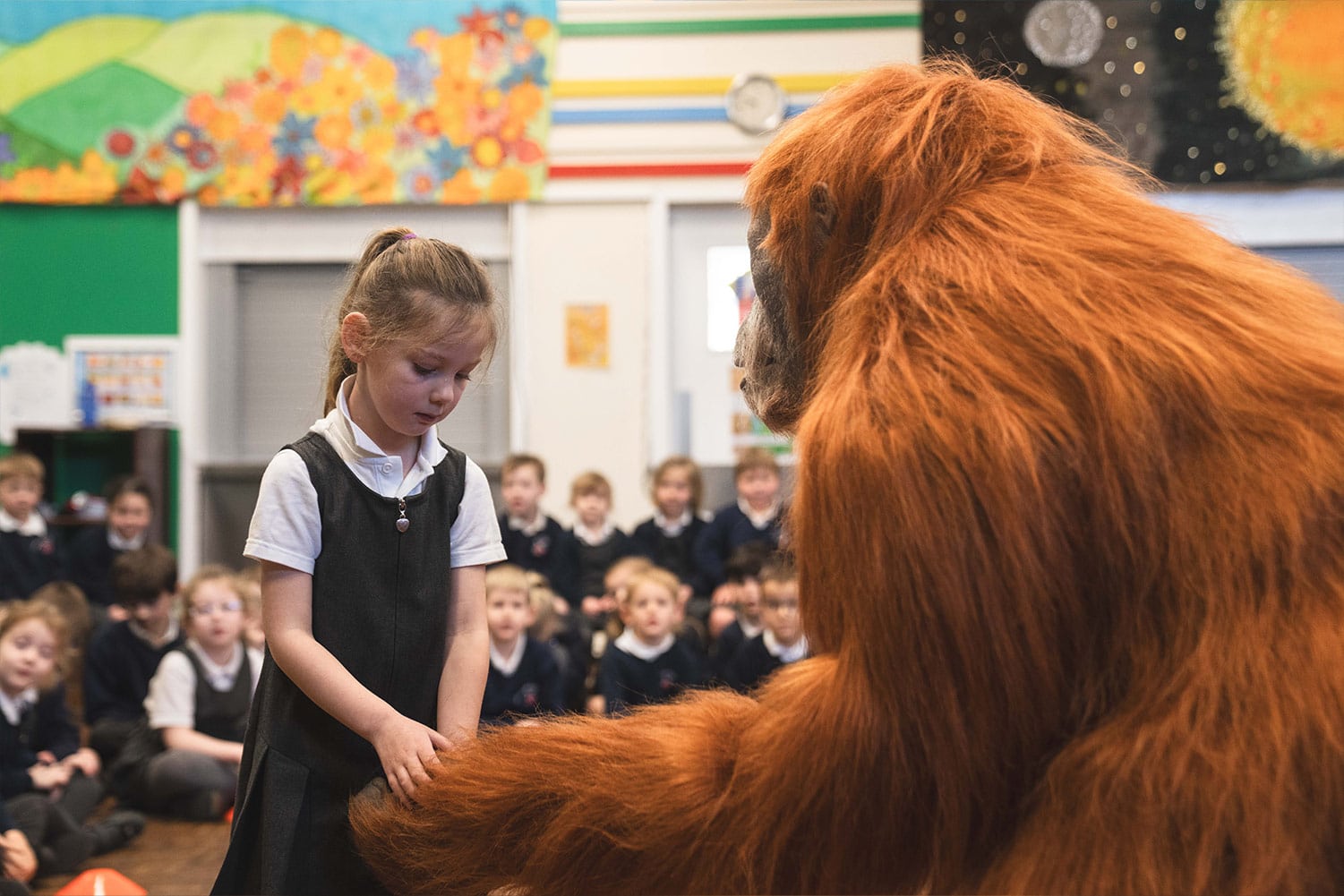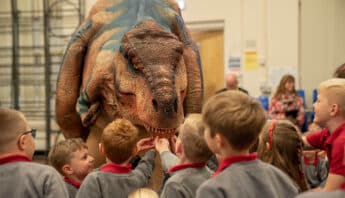The Impact of Storytelling on Pupil Wellbeing
In every Teach Rex session, storytelling plays a central role. Children hear stories about dinosaurs, dragons, and rainforest animals in a way that draws them into a world where their imagination leads the narrative. But the benefits of storytelling go far beyond engagement. When used thoughtfully, storytelling can have a powerful effect on children’s emotional wellbeing.
It gives them the tools to understand themselves, connect with others, and develop resilience, all while having fun.
Why Storytelling Matters in the Primary Classroom
Storytelling is one of the oldest tools for making sense of the world. For children, stories provide a safe space to explore emotions, face challenges, and consider different perspectives. A well-crafted narrative helps children:
- Understand big feelings like fear, sadness, or anger
- See that challenges can be overcome
- Realise that others might think or feel differently
- Develop empathy, confidence, and self-awareness
At Teach Rex, our stories are grounded in PSHE themes like friendship, courage, identity, and kindness, helping pupils reflect on their own experiences through the lens of a creative, shared journey.
Imagination Creates Distance, and That’s a Good Thing
When a child hears a story about a dragon that feels left out or a dinosaur learning to stay calm, they’re able to explore emotional ideas at a comfortable distance. It’s not about them, it’s about the character.
This distance allows children to reflect without feeling vulnerable. They can make connections, express opinions, and relate to the narrative, all while feeling safe and in control.
Stories Make Emotions Visible and Manageable
In a Teach Rex workshop, the dragon might roar when it’s scared or hide when it’s unsure. These emotional cues help children recognise and label feelings, not only in the characters, but in themselves and others.
By externalising emotions through story, children learn that:
- It’s okay to feel a range of emotions
- Emotions can be managed with support
- Others may feel the same way too
This builds emotional literacy, one of the foundations of pupil wellbeing.
Shared Stories Strengthen Social Bonds
Stories help children reflect internally and create shared experiences that bring groups closer together. A whole class cheering for a dinosaur or laughing at a dragon’s mistake develops a sense of connection and belonging.
This group storytelling dynamic:
- Encourages listening and turn-taking
- Promotes respect for others’ ideas
- Strengthens peer relationships
When pupils feel emotionally safe and socially connected, their overall wellbeing improves.
Resilience Through Narrative
Many stories follow a simple but powerful structure. A challenge is introduced, the character faces difficulties, and eventually finds a way through.
This structure mirrors the kind of resilience we want children to build. It shows them:
- Setbacks are normal
- Problems can be worked through
- Growth comes through effort, reflection, and support
By identifying with characters who persevere, children are more likely to develop their own sense of independence and confidence.
Storytelling Supports PSHE Goals
Teach Rex workshops align with key areas of the PSHE curriculum, particularly those focused on emotional wellbeing, relationships, and personal identity. Through interactive storytelling, children engage with ideas like:
- Recognising and naming emotions
- Understanding the impact of actions
- Managing change and transition
- Celebrating differences and diversity
The result is an experience that not only captivates but also contributes meaningfully to their personal development.
Empowering Young Minds Through Stories
Storytelling is a powerful tool that supports both learning and emotional wellbeing. When used thoughtfully, it helps children explore their feelings, build empathy, and develop the resilience they need to thrive.
At Teach Rex, we aim to create experiences where every child feels heard, valued, and inspired, and storytelling plays a vital role in achieving that. If you’d like to bring this approach into your classroom through one of our immersive workshops, we’d love to hear from you.







